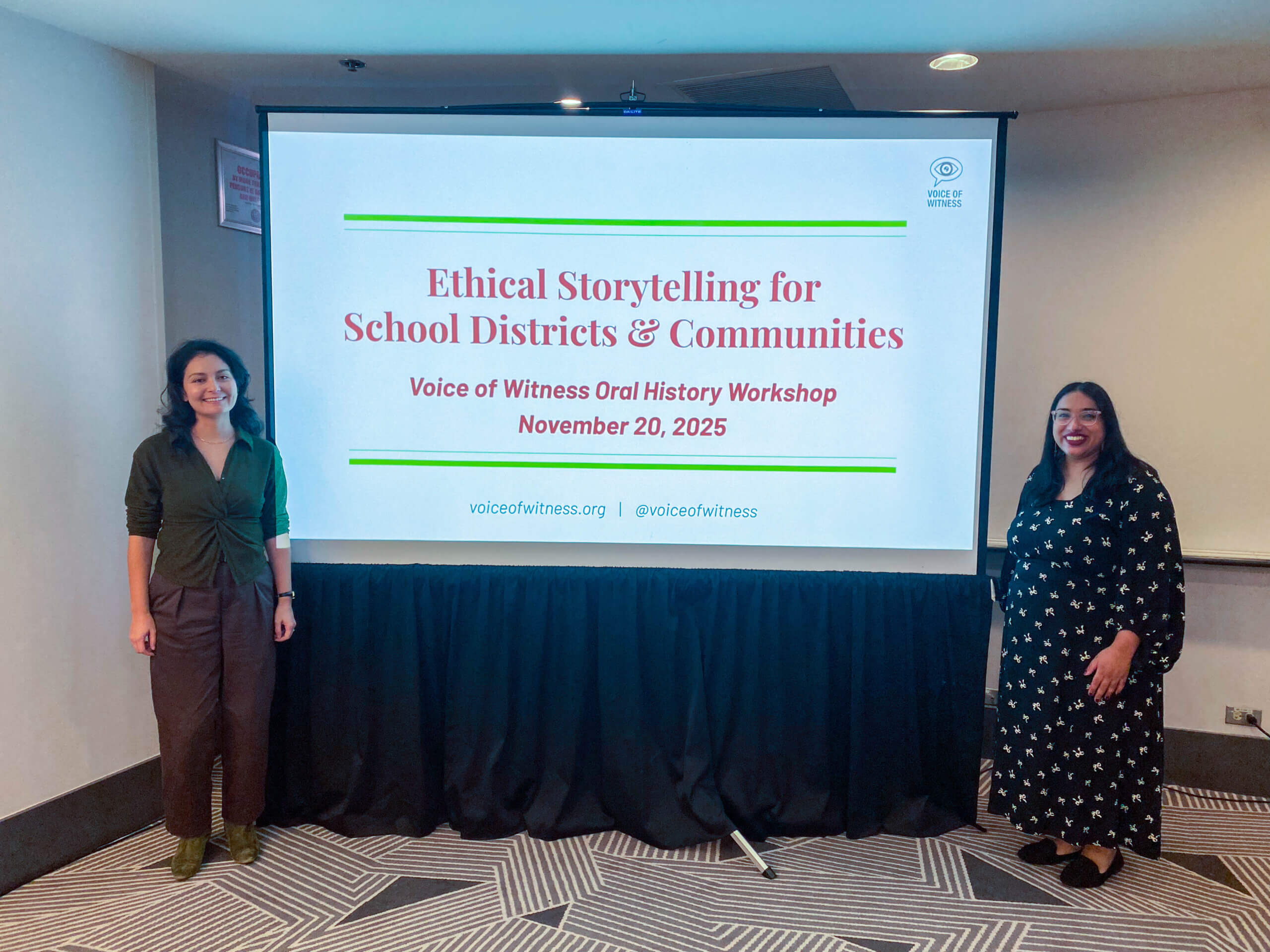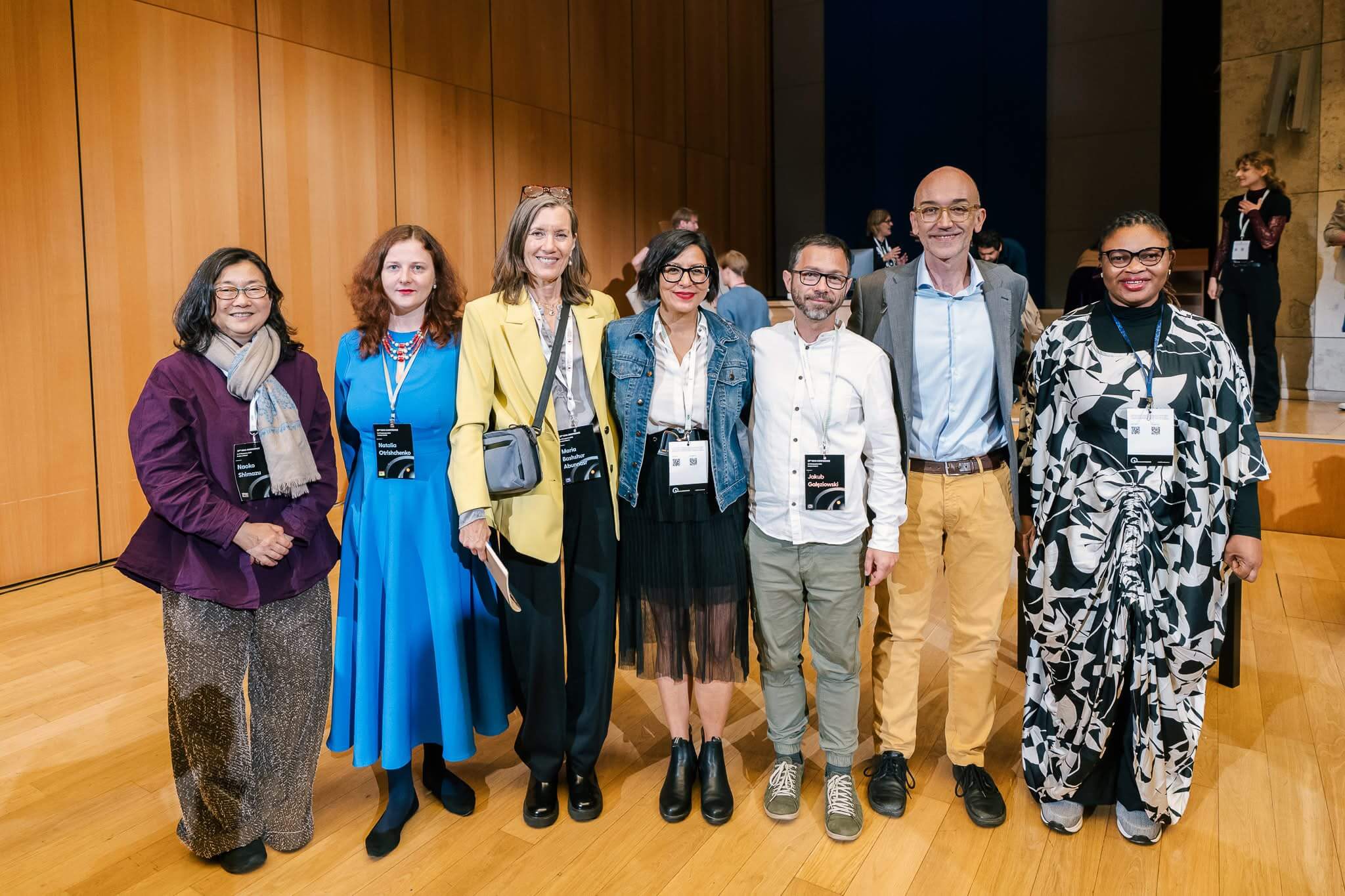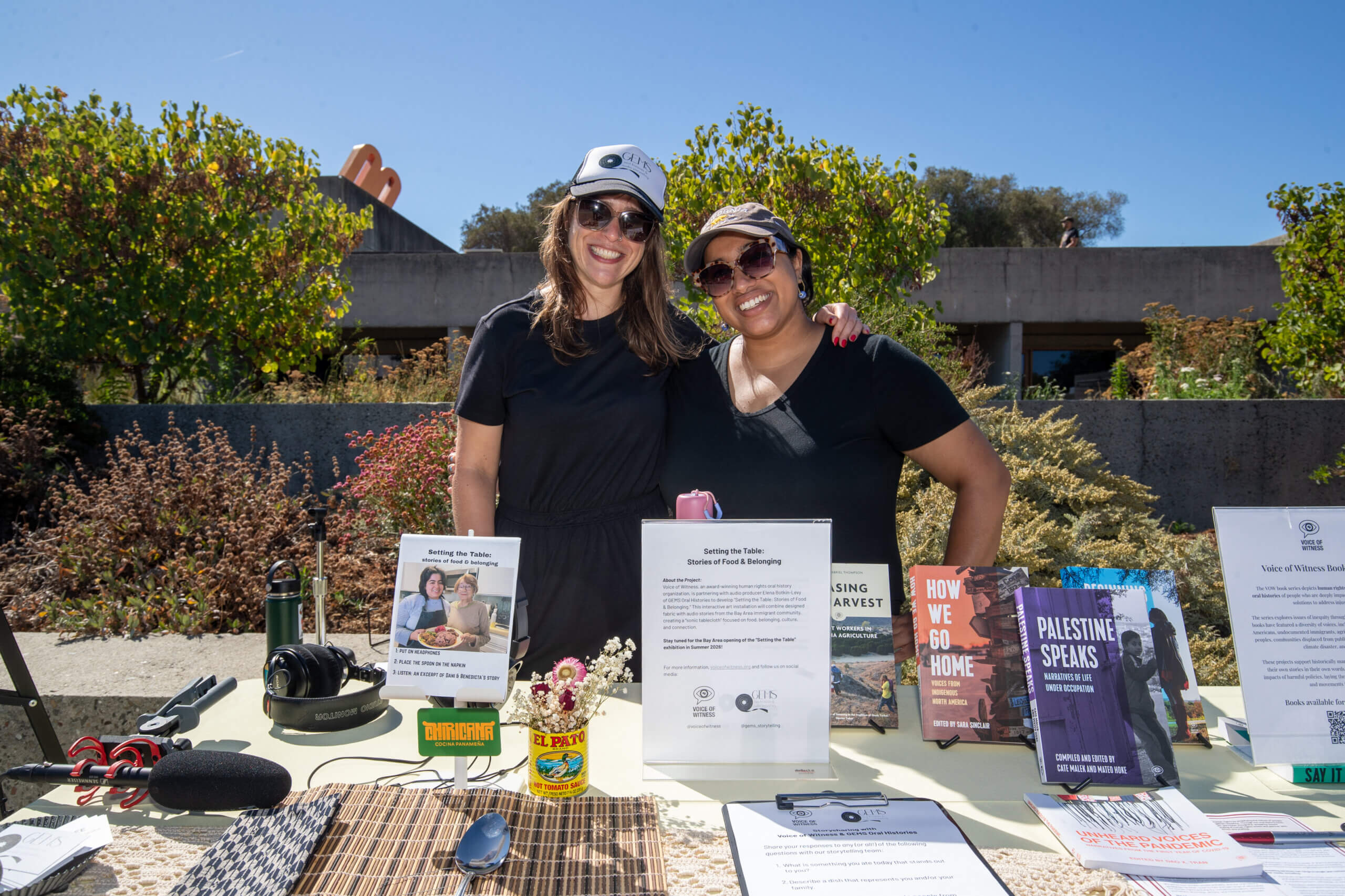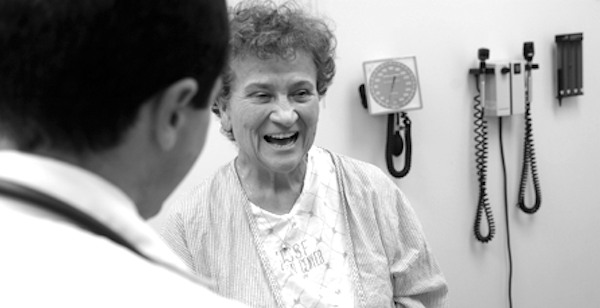
“These are topics that we don’t often explore in the context of traditional medicine.”
Partner Spotlight: Jennifer Merrilees
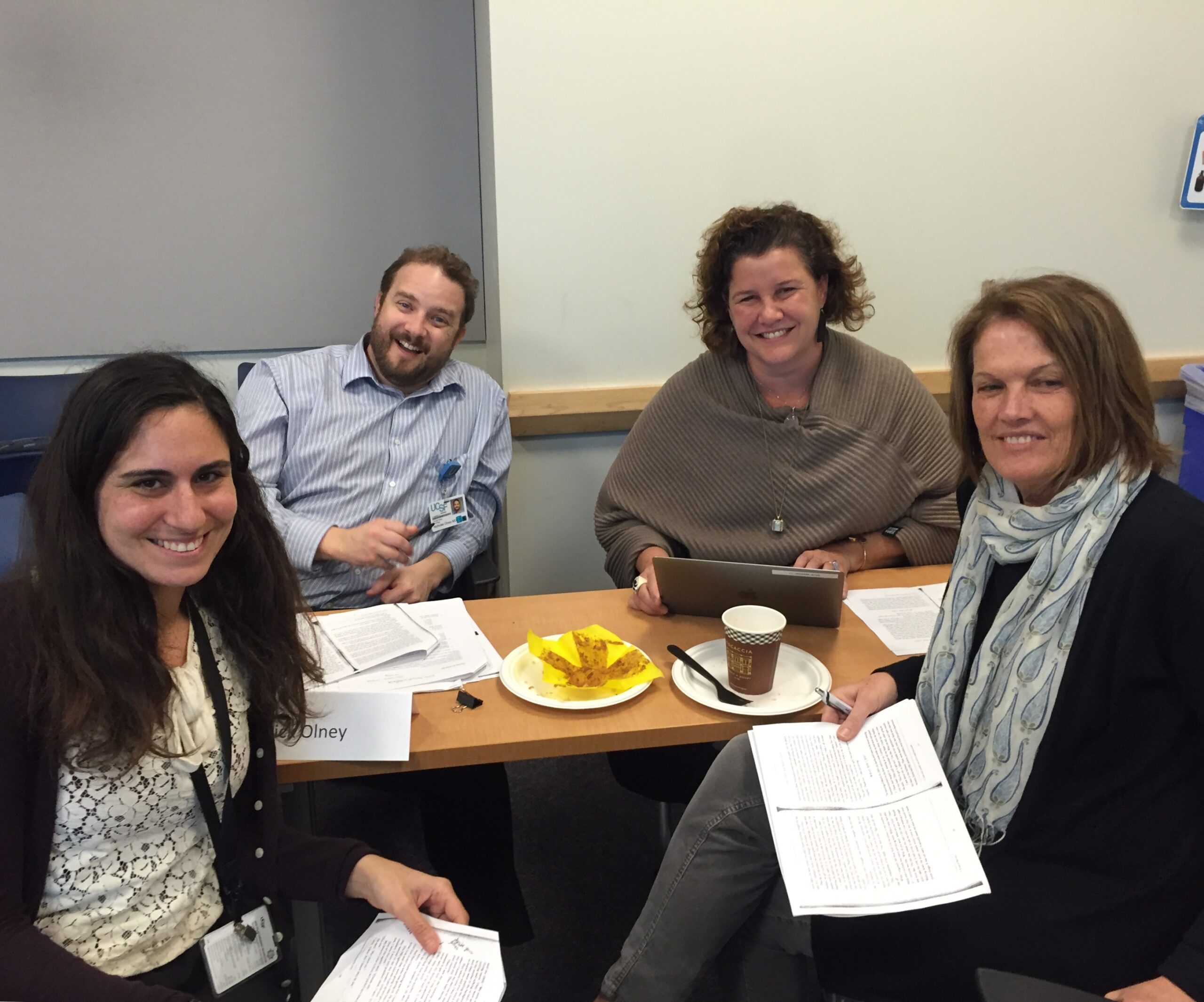
Jennifer is a clinical nurse specialist at the UCSF Memory and Aging Center (MAC), where she works with dementia patients and caregivers. Voice of Witness is currently supporting MAC through a community-based consultancy as they tell seldom-heard stories of dementia in their Hear/Say project.“In my years working in the field of dementia, I have seen the stigma and lack of understanding that often surrounds the experiences of people living with and nearby this disease. In early stages of illness, patients are often self-conscious and begin to limit their social interactions. Many family caregivers feel that much of what they do to care for and support their loved one is invisible to the rest of the world.
With support from Voice of Witness, we’ve developed the Hear/Say project to bring these dementia stories to light. We’re interviewing patients and caregivers about their personal experiences. We’re also including stories from those of us who work in this field to illustrate what motivates physicians, nurses, and scientists to dedicate themselves to this work. The listening that is integral to the work of Voice of Witness fits perfectly with the work we do at the MAC: people’s stories and their experiences inform everything from diagnosis to care.
I’ve been humbled by the stories that I’ve been privileged to hear. I interviewed one caregiver who I’ve worked with for almost 14 years, and I’m struck by how much I didn’t know about her. Her stories give insight into her values and the choices she’s made around her husband’s care and its impact on her children. These are topics that we don’t often explore in the context of traditional medicine.
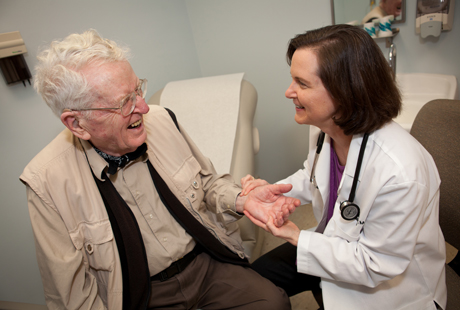
I’ve also learned some practical tips on ways to improve my interview techniques. I nod my head more to show agreement because I could hear on the audio transcripts how my verbal agreement interrupted the narrator.
This project also reinforces the utility of asking open-ended questions—you get far more meaningful information than if you are restricted to a survey or yes/no questions. I’ve gotten to know people on a more meaningful level – even the people I’ve known for many years. This process has been a natural extension to the work we do in behavioral neurology: person-centered and listening without judgment.
We hope these stories will help other caregivers feel less alone in their experience. Maybe we’ll inspire the next generation of physicians, nurses, and scientists to be engaged in the field of dementia!”

